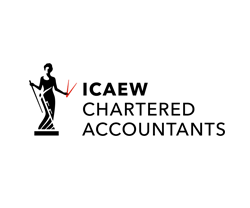February 18th, 2020
IR35 – Changes for the Private Sector from April 2020
From 6 April 2020, the IR35 “off-payroll” rules will be extended to the private sector, whereby the responsibility will fall on the end client, as opposed to the entity providing the worker, in determining whether the IR35 rules apply.
What is IR35?
IR35 is legislation to counter the avoidance of tax and National Insurance by workers providing their services via a limited company (a personal service company [PSC]).
Essentially, to determine whether IR35 legislation should apply, the question that needs to be asked is, if the PSC did not exist, would the relationship between the worker and the end client be that of employee and employer?
This needs to be assessed on a contract-by-contract basis for anyone who is potentially affected.
If IR35 applies, the end client will need to place the worker on their payroll and deduct PAYE and National Insurance before paying the worker.
It is worth noting that the rule change will only apply where the end client is not considered “small”.
What is “small”?
Two or more of the following criteria would need to be met for an end client to be considered “small”:
• Annual turnover – not more than £10.2 million
• Balance sheet total – not more than £5.1 million
• Number of employees – not more than 50 (based on a monthly average)
How does an end client determine IR35 status?
Ultimately, the end client needs to assess the employment status of the worker – i.e. employed or self-employed.
The end client would need to consider a number of factors in assessing IR35 status:
Supervision, direction and control
i.e. When it comes to the worker’s day-to-day work, what they do, where they do it, when they do it, how they do it, and why they do it need to be considered.
The more autonomy a worker has, the less likely they will be affected by IR35 rules.
Substitution
i.e. Does the worker have the right of substitution without restrictive conditions being imposed?
Substitution must be made by the PSC, and the substitute paid by the PSC – not by the end client.
One way to look at this is to consider that an employee has a contract to serve, whereas someone who is genuinely self-employed would have a contract to provide services (which wouldn’t necessarily have to be fulfilled by them personally).
Mutuality of obligation
i.e. Is the end client obliged to offer future work, and is the worker obliged to carry out this work? Is there exclusivity – does the worker only work for one client?
The more exclusivity there is, the more likely IR35 rules will apply.
Other factors
e.g. Is the worker running a business in its own right? (Having other customers; having own business premises; taking on risk; capacity to both make profits and suffer losses; providing significant equipment [rather than this being provided by the client]; being VAT registered, etc.)
e.g. Is the worker an integral part of the organisation? (Being listed on telephone/ email directories; being provided with office space on the client premises; being given a formal title by the client; performing work similar to that of employees on the payroll, etc.)
What action needs to be taken?
As there are so many factors to consider, there is no “one-size fits all” approach that can be applied, and even in the case of a single PSC, one contract can differ from the next. All factors need to be considered, applying a “balance of probability” approach.
HMRC have created an online tool which it is recommended those potentially affected take a look at. This is the Check Employment Status for Tax (CEST) tool, and can be accessed here.
Provided the information keyed into the CEST tool is accurate, HMRC will stand by the end result of the tool, so it is worthwhile saving a copy of the result to support your case should HMRC ever argue otherwise.
Once assessed, the end client should issue a Status Determination Statement (SDS), giving reasons for their conclusion (i.e. whether they consider IR35 rules to apply, or not). A copy of this should be given to the worker, and where there is an agency involved in the supply of labour, they must be provided with a copy also.
HMRC have published guidance on the changes from April 2020 and this can be accessed here.





